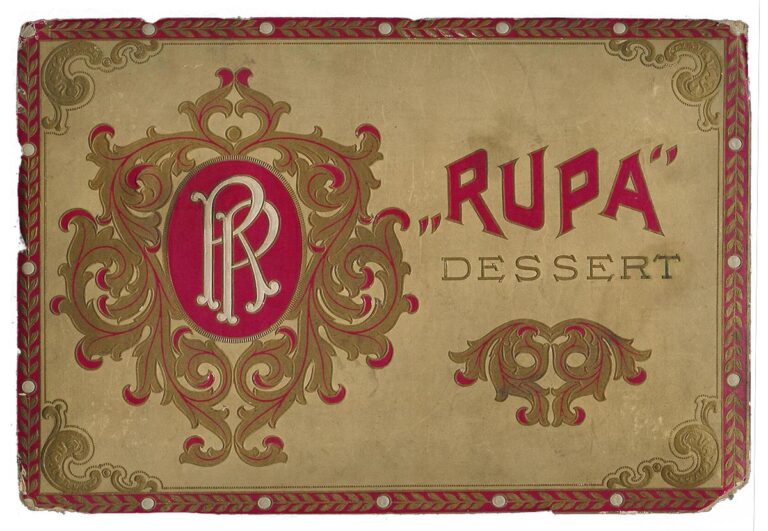About us
Who are we?
We are RUPA, a modern company proud of its deep roots and traditions. Since 1996, we have specialized in production of premium nutritional bars, such as muesli, nut, or protein bars. Our popular bars bear famous brands like Fly or Maxinuta, but our true expertise lies in private labels, where we can perfectly respond to the needs of our partners and tailor bars exactly to their requirements.
RUPA delivers its products to several countries worldwide. It relies on long-standing partnerships with leading retail chains and produce bars under white label for the most renowned European bar brands.
Located in the heart of Europe, in Prague, specifically in the Hostivař area, where history has been written since 1914. Come with us to explore our history and read stories of great people who laid the foundations of what RUPA is successfully carrying on today.
We are RUPA– Modern approach with traditional values.
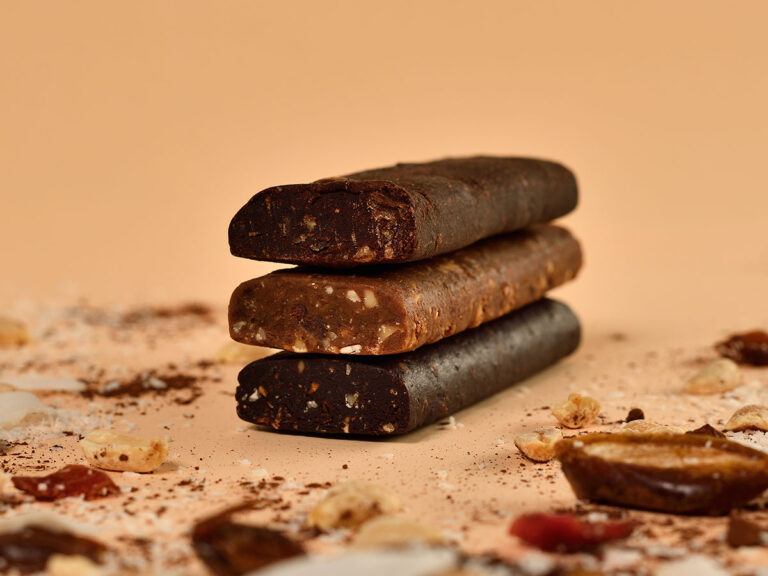
Rupa Company Timeline
Second Era:
New Rupa (1996 – Present)
2024
Investment in new lines
The company invested in technology for the production of multilayer bars, in the modernization of existing lines, and in the digitalization of production. These investments doubled the capacity for protein bar production and helped the company keep up with the latest trends, increasing its competitiveness in the market.
2023
Return to profitability
After two crisis years caused by the COVID-19 pandemic, export declines, the energy crisis, and rising raw material costs, the company returned to profitability. This success demonstrated the company’s resilience and ability to overcome difficult periods.
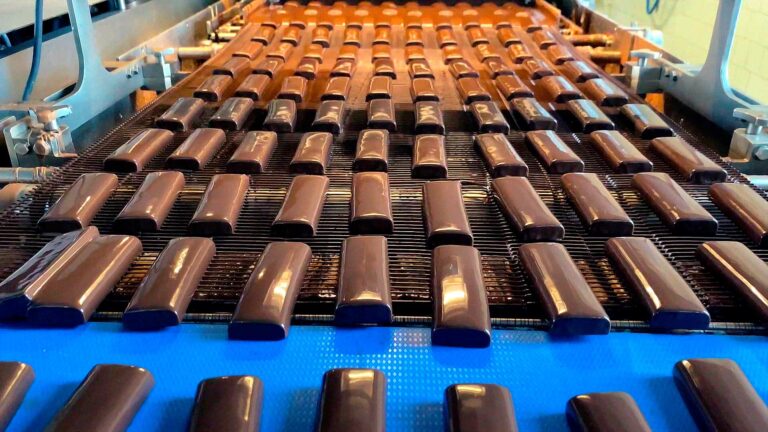
2021
25th anniversary of the company
The company celebrated 25 years since its modern reestablishment, marking a significant milestone to reflect on past successes and challenges.
2020
New management
The founder’s daughter Aneta Rainet Štěpánková and her husband Tomáš Rainet took over as head of the company. Together with the new sales director Miloš Plaček, they brought new energy and strategy that moves the company towards an efficiently managed company with an emphasis on quality, a pro-customer approach and modern technology.
2019
Turnover of 250 million CZK
The company achieved a turnover of 250 million CZK, with 80 % of production consisting of private labels. This success demonstrated the strength of the Rupa brand in the market and the company’s ability to adapt to changing customer demands.
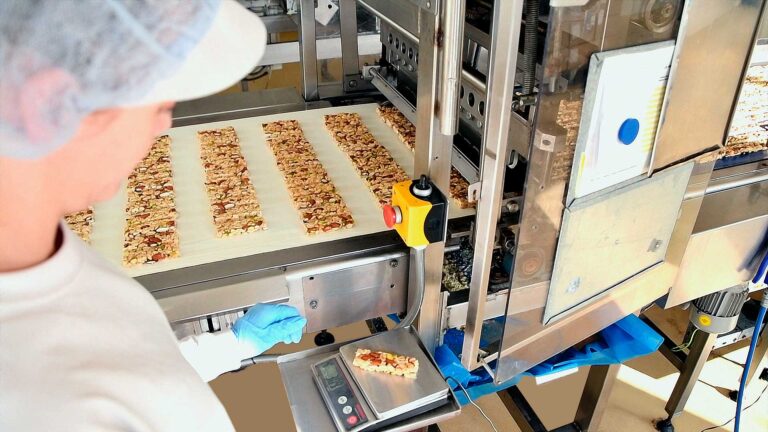
2017
Installation of a third line and
ongoing innovation
A third production line was installed. Rupa now has a dedicated line for protein bars and has added raw bars and oat flapjacks to its portfolio. This modernization allowed the company to further expand and introduce new, trendy products.

2015
First protein bar
The first protein bar was produced, meeting the growing demand for healthy and functional foods and opening new markets for the company.
2010
Maxi Coconut and Maxi Marzipan
The Maxi Coconut and Maxi Marzipan bars were added to the product portfolio, enriching the company’s offerings and attracting new customers.

2008
Advent calendars and figurines
The company began producing Christmas figurines and advent calendars, continuing the seasonal offerings that had been a tradition since the first era of Rupa.
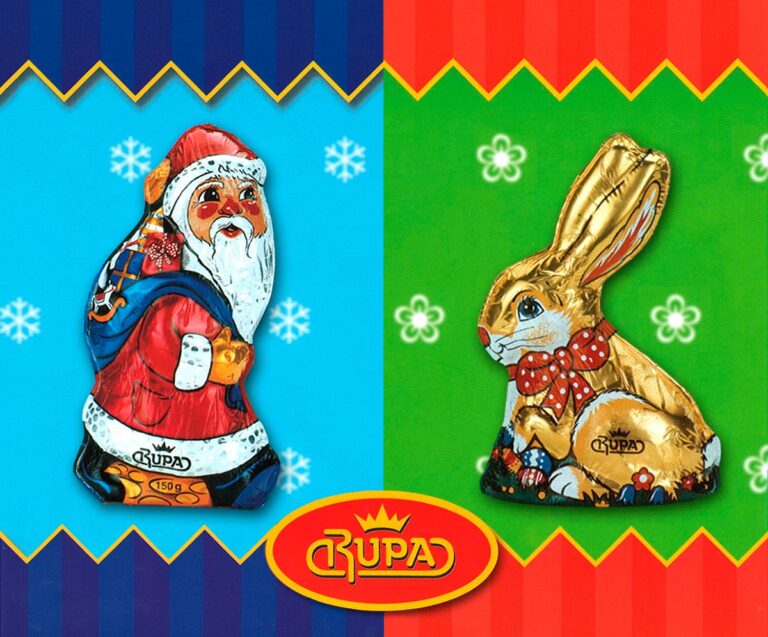
2007
First nut-based Maxi Nuta produced
The first nut-based Maxi Nuta bar with 60% nut content, the first of its kind on the market, was produced.
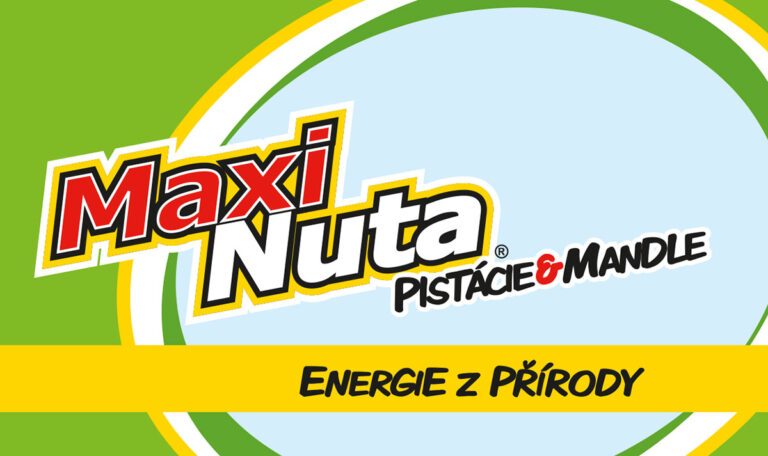
2003
Fly Sport and nougat desserts
Fly Sport bars and nougat bars were introduced to the market. These new products expanded the company’s offerings and attracted new customers.
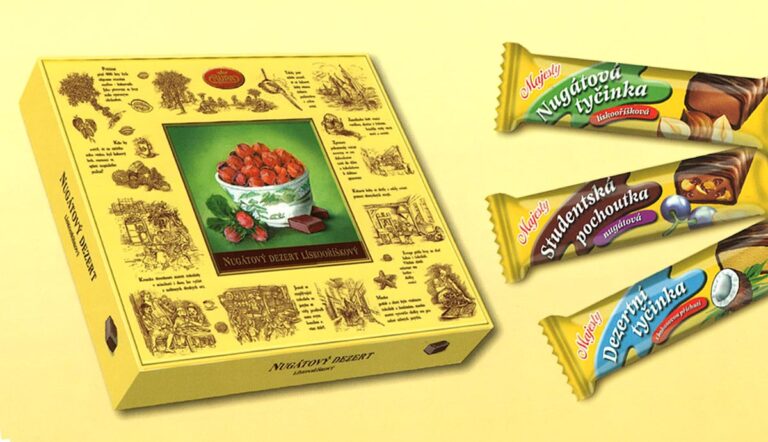
2001
Installation of a second line
A second production line was installed in the factory. This modernization increased production capacity and ensured higher product quality.
2000
Turnover exceeds 100 million CZK
The company achieved a turnover of 103 million CZK, confirming the success of its new strategy and enabling further investment in its development.
1997
First muesli bars
The first production line for Lekos and Sollich muesli bars and the Tevopharm packing machine were installed in the Hostivař factory. The first Fly brand muesli bars appeared on the Czech market, quickly becoming popular and laying the foundation for further product expansion.

1996
Founded by Ing. Jan Štěpánek
In 1996, the majority owner of the modern Rupa, Ing. Jan Štěpánek, came up with the idea to revive the once-famous brand. He contacted the descendants of Rudolf Pachl, who had no objections to reviving the brand. He founded RUPA, spol. s r.o., with five partners on the premises of his Hostivař company—formerly his grandfather František Štěpánek’s shoe factory. Production began on a second-hand line, marking the start of a new chapter in Rupa’s history.
First Era:
Foundation and Growth (1916 – 1948)
1948
Pachl family emigrates
After the February coup, the Pachl family emigrated to London and then to Canada, where Jan Pachl founded the Comet chocolate factory in collaboration with the German company Trumpf. His son Rudy later joined him. The Modřany factory was transferred to Orion, and the Rupa brand disappeared from the market, marking the end of one era and the beginning of a new chapter in the Pachl family’s life.

1947
Nationalization of the factory
The factory was nationalized, and Jan Pachl remained as director. In 1947, he opened a new factory, JaPa, in Čadca, Slovakia, which was also nationalized. Rupa became part of the Prague Chocolate Factories.
1945
Chocolate production resumed
After the war, chocolate and confectionery production resumed. The factory quickly returned to its original activities and began producing popular products again, regaining its customer base.
World War II
Chocolate production limited and weapon manufacturing
The product range was gradually reduced, and by 1944, chocolate production ceased. The factory was converted to produce weapons. The war significantly impacted the factory’s operations, with many employees reassigned to this new production.
1938
One of the largest chocolate and confectionery producers
At peak season, the company employed nearly 2,000 people and was one of the largest chocolate and confectionery producers in Czechoslovakia. This period marked the pinnacle of Rupa’s first era, establishing it as a significant market player.

1936
Purchase of a starch factory and new management
The company purchased a starch factory in Krahulec, and Rudolf’s son, Jan Pachl, took over the management. This step expanded production and diversified the product line, helping the company grow and thrive even during challenging times.
1930s
Network of 190 owned stores
Rupa created a network of its own stores, which by 1936 had grown to 190 shops across then-Czechoslovakia. This expansion meant that Rupa products were widely accessible and gained popularity.
1932
New factory in Modřany
A new factory was built in Modřany, later known after the war as Orion Modřany, and after 1989, it became the headquarters of Nestlé. The new factory allowed for expanded production and the introduction of more modern technologies, leading to even higher quality products.
1927
Chocolate factory with 160 employees
The factory employed 160 workers and mainly produced chocolate bars, desserts, and seasonal goods. During this time, the product range expanded, and the quality of the chocolate gained increasing recognition.
1916
Founded by Rudolf Pachl
In 1916, Rudolf Pachl established a chocolate and confectionery factory. The initials of his name (RU-PA) formed the factory’s brand. The factory was located in three houses on Palackého Street No. 9, now Táborská Street in Nusle, where the town hall currently resides.
